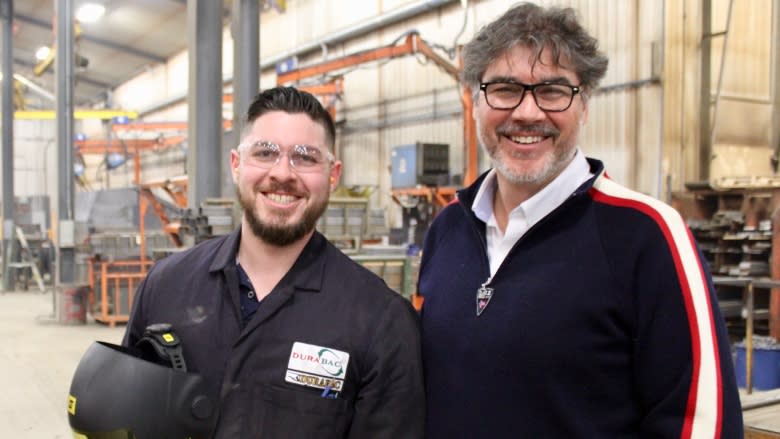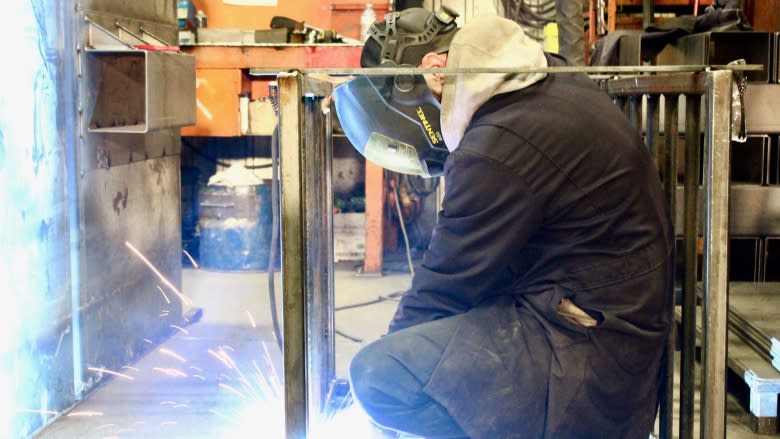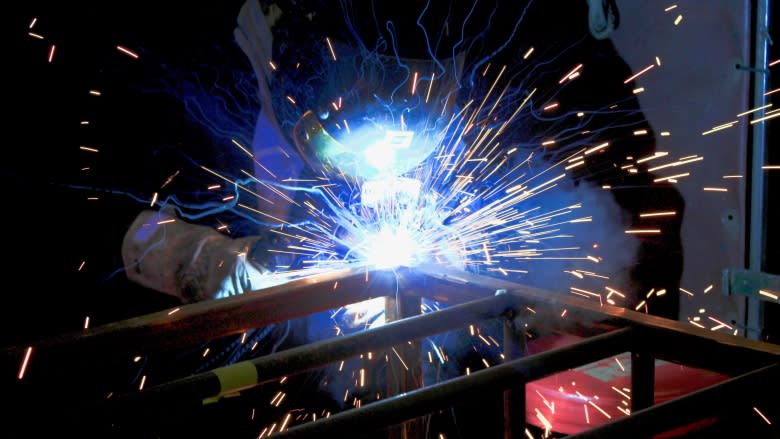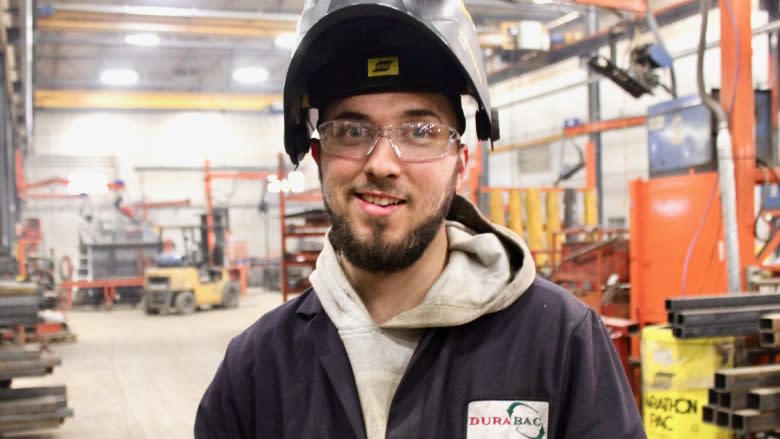Quebec factory transforms into welding school by night to combat labour shortfall
Patrice de Bellefeuille knew a career jump wasn't going to be easy.
The 25-year-old father of two needed to support his family and couldn't afford to stop working full-time to go back to school.
De Bellefeuille spent several years working in construction before doing odd jobs at a company that produces various garbage bins.
It paid the bills, but de Bellefeuille knew he wanted more.
His golden opportunity came as his most recent employer, Granby-based manufacturer plant Durabac, was facing a major labour shortage.
The manufacturing plant makes just about every type of garbage container on the market — from the small donation bins you see outside community organizations, to the garbage trucks for the City of Montreal.
Filling a need
Durabac employs more than 40 welders, but the company is looking to hire 25 more to fill its increasing demand — which proved to be a difficult task.
The company's solution was to start training and certifying its own welders in a paid, condensed, three-month program.
That's when de Bellefeuille realized he could keep working, and expand his skill set to become a welder at the same time.
For Patrick Charbonneau it was a win-win situation.
The owner of Durabac said he spent a year trying to find more workers.
Charbonneau said he called schools that offer welding programs in hopes of finding new employees, but to no avail.
"They said they didn't have enough people who had registered for the next semester," he said.
On the fast-track
Charbonneau decided to start offering the welding certification out of his warehouse.
The company adapted a one-year self-taught program offered through Emploi-Québec, a government service that helps companies and employees navigate the province's workforce.
"We took that program, transformed it and hired a trainer to accelerate the process,'" said Charbonneau. "So the trainees get their welding certificate after three months."
The training takes place three nights a week, between 6 p.m. and 10 p.m., and the students have to work to accumulate hours as well.
Charbonneau said the certificate they receive is equivalent to a professional diploma offered through Emploi-Québec.
De Bellefeuille admits working all day, then training at night, is a sacrifice — but it's one he's willing to make.
Welding programs offered at most vocational and technical schools can take up to two years to complete, and can cost upwards of $1,600.
"[I had to adapt to] not being able to see the kids, and for my wife, who had to take on all the extra household work —even helping with my lunch," he said.
Success story
Charbonneau said he received close to 40 applications for the program at Durabac, and of those, he selected 10 candidates.
"It's going better than expected," he said. "Some of these guys will actually be better in their first weeks than some workers who have been doing the job for a long time," he said.
But there were doubts at first as well.
When Alain Coderre first heard about a welding program that could be completed in three months, he wasn't convinced it was possible.
The welding teacher from a vocational training program in Cowansville said, at first, he thought three months was too short — but he was willing to try it out.
Coderre helped to design the fast-track program, and a month into it, he says he's pleasantly surprised.
"They're doing well because they are so motivated and they want to be here," he said.
De Bellefeuille knows his ultimate goal, to build a garbage truck, is still a long way off. But he says he's willing to keep his shoulder to the wheel to make it happen.





